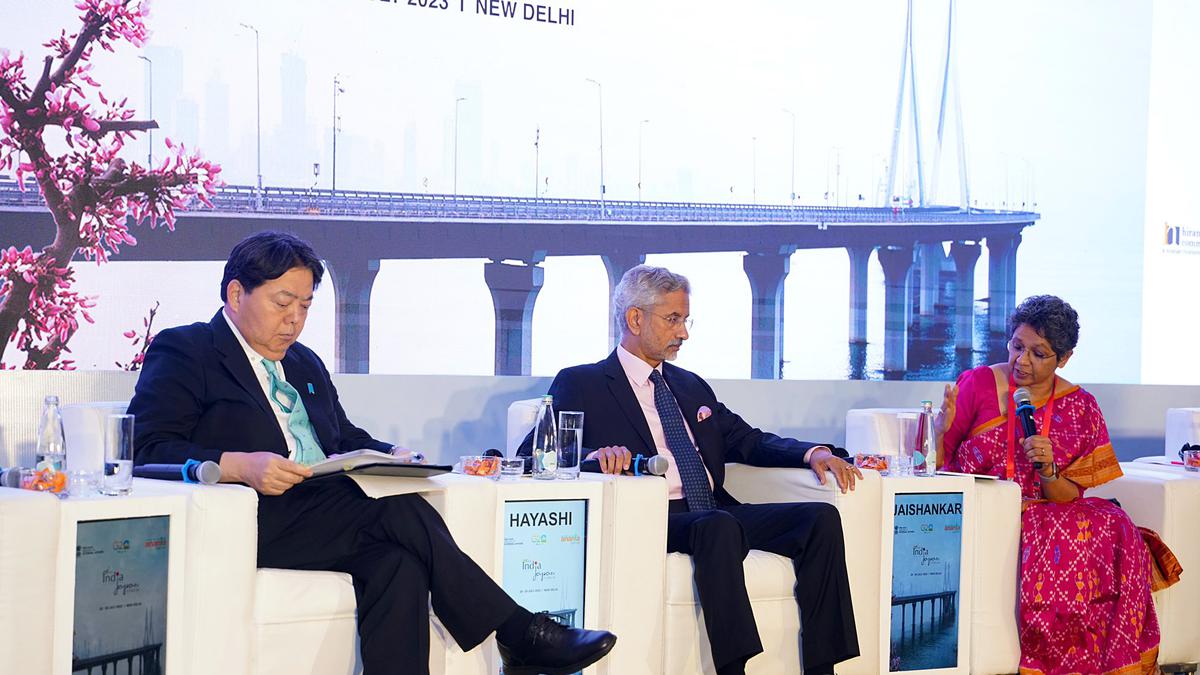
India, Japan will work to strengthen ‘peacetime cooperation’: Jaishankar
The Hindu
India and Japan would rather work to strengthen their “peacetime cooperation,” said External Affairs Minister S. Jaishankar. Speaking at a think tank event in Delhi along with visiting Japanese Foreign Minister Yoshimasa Hayashi, the External Affairs Minister said the two countries were “natural partners”.
India and Japan would rather work to strengthen their “peacetime cooperation,” said External Affairs Minister S. Jaishankar on July 28, side-stepping a question about how the two countries would cooperate in case of a conflict in the Taiwan straits, or between India and China at the Line of Actual Control. Speaking at a think tank event in Delhi along with visiting Japanese Foreign Minister Yoshimasa Hayashi, the External Affairs Minister said the two countries were “natural partners” in facing the challenges of a “future world order”.
Editorial | Tightrope walk: on the India and Japan relationship
“It is actually the peacetime cooperation, which is when you are tested,” said Mr. Jaishankar, in response to a question from Japanese newspaper Nikkei about what kind of “wartime cooperation” could be expected from India in case of a war in the Taiwan straits, in a reference to any possible Chinese military action against Taiwan. “I would say for us, the challenge is that we work every day in every possible way to strengthen our cooperation, whether it’s in economics, supply chains, digital domain or critical technologies and also in maritime security,” he expanded, adding that by strengthening “peace, stability and security” in the region, India and Japan could ensure that “many of the worst fears” would not be realised.
To a question on what Japan’s reaction to a conflict on the India-China border conflict or in the Indo-Pacific would be, however, Mr. Hayashi was more direct.
“We are already doing some cooperation in the security sphere, such as in January,” he said, referring to India-Japan military and maritime exercises that included the first-ever joint fighter exercise in January this year, and added that strong bilateral ties and more people-to-people cooperation would increase stability in the region. “On top of that there is defence cooperation, and that will be working against any of those scenarios in the future,” he said.
Also Read | India-Japan Army exercise ‘Dharma Guardian’ gets under way
During heightened U.S.-China tensions in the Taiwan straits after U.S. Speaker Nancy Pelosi’s visit to Taipei in August 2022, India had issued its own statement urging “restraint”, but had not joined the Quad partners U.S., Japan and Australia Foreign Ministers in a statement demanding that China cease military exercises in the Taiwan straits. Through the LAC stand-off between the Chinese PLA and the Indian Army since April 2020, New Delhi has also made it clear that it hopes to resolve issues with Beijing “diplomatically” and bilaterally, indicating India’s preference for a less strategic posture within the Quad.

LGBTQ+ couples in Thailand register their marriages on the first day of law giving them equal status
Thailand legalizes same-sex marriage, granting LGBTQ+ couples equal rights and recognition, marking a historic milestone in Asia.

















